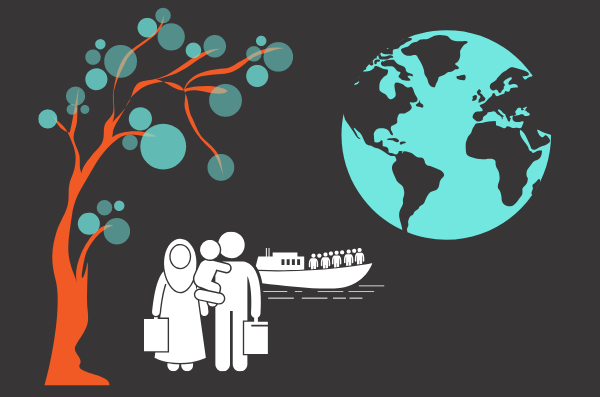
This week, Fr Arturo Sosa SJ, the Superior General of the Society of Jesus (Jesuits) made public the Universal Apostolic Preferences (UAPs), which resulted from a two-year period of reflection, or discernment, by its members and have been approved by Pope Francis.
The UAPs are spiritual and practical guidelines which will provide the framework on which the work of the Jesuits will be based from 2019 to 2029. They will inform the strategic direction of all organisations comprising the Jesuit global network during that period.
The four Universal Apostolic Preferences are:
A. To show the way to God through the Spiritual Exercises and discernment;
B. To walk with the poor, the outcasts of the world, those whose dignity has been violated, in a mission of reconciliation and justice;
C. To accompany young people in the creation of a hope-filled future;
D. To collaborate in the care of our Common Home.
Irish Jesuit Missions (IJM) welcomes the publication of the UAPs, which all are intimately connected to the work that we do.
Ignatian Spirituality
The first UAP states that:
“We want to share with others the most fundamental discovery of our lives, namely, that discernment and the Spiritual Exercises of Saint Ignatius show the way to God. We need to follow the call to deepen our knowledge and experience of Ignatian spirituality, and we want to do so out of a living faith that is incarnate and consistent, a faith nourished by familiarity with God that is the fruit of a life of prayer, a faith that enters into dialogue with other religions and with all cultures.”
These spiritual exercises enable the contemplation and stillness necessary to see ‘God in all things’ and transform this discernment into action. Being ‘a faith that does justice’ is a fundamental tenet of the Jesuit ethos.
Reconciliation and Justice
The second UAP reaffirms the Jesuit commitment to go to the margins of society, to work for and with people who are excluded from opportunity because of structural injustice, poverty, war and other factors outside of their control.
“We confirm our commitment to care for migrants, displaced persons, refugees, and victims of wars and human trafficking. We also resolve to defend the culture and the dignified existence of indigenous peoples. Consequently, we will continue to help create conditions of hospitality, to accompany all these people in their process of integration into society, and to promote the defense of their rights.”
IJM and our partners in Ireland and overseas work with people who are marginalised and vulnerable for these reasons in communities throughout Africa, Asia and the Middle East. These include refugees who are displaced from their homes by war and forced to live in temporary settlements, and people who are struggling to sustain themselves in some of the poorest places on Earth. We work with individuals and families in these situations to empower them to provide for themselves, by becoming part of these communities on a long-term basis. We also support projects that advocate for the rights of citizens in countries where the political system denies them their basic human rights, to strive for social justice for those who often lack a voice.
Hope for the Future of Young People
Many young people are denied the opportunity for an education, which takes away their chance of a hopeful future and the chance to reach their potential. Jesuits in Ireland and globally are renowned for their involvement in education and IJM supports schools and colleges in many disparate places. We provide education in refugee settlements, in disadvantaged townships and in war zones. Accessing schooling and training is an investment in people that goes beyond giving aid, as it offers hope and the chance of self-sufficiency for future generations.
“Youth is the stage of human life when individuals make the fundamental decisions by which they insert themselves into society, seek to give meaning to their existence, and realize their dreams.”
We welcome the focus on young people that is stated in the third UAP, and the privilege of continuing to offer hope and empowerment to young people who live in difficult circumstances.
Care for the Earth
“The damage done to the earth is also damage done to the most vulnerable, such as indigenous peoples, peasants forced to emigrate, and the inhabitants of urban peripheries. The environmental destruction being caused by the dominant economic system is inflicting intergenerational damage: not only does it affect those now living on earth, particularly the very young, but it also conditions and jeopardizes the life of future generations.”
Concern for the Earth and the destruction of our natural resources is addressed in the fourth UAP, and it is an integral part of our work at IJM. The effects of a climate changing world include increased conflict and food scarcity, causing migration, conflict and increasing levels of poverty and instability in vulnerable communities.
“We resolve, considering who we are and the means that we have, to collaborate with others in the construction of alternative models of life that are based on respect for creation and on a sustainable development capable of producing goods that, when justly distributed, ensure a decent life for all human beings on our planet.”
IJM works with ecological projects in several countries in Africa, which teach organic farming methods and offer solutions to problems caused by environmental damage. Jesuit organisations worldwide are involved with political advocacy to encourage and pressure governments to implement sustainable environmental practices that prioritise the Earth rather than profit.
To find out more about the Universal Apostolic Preferences click here

